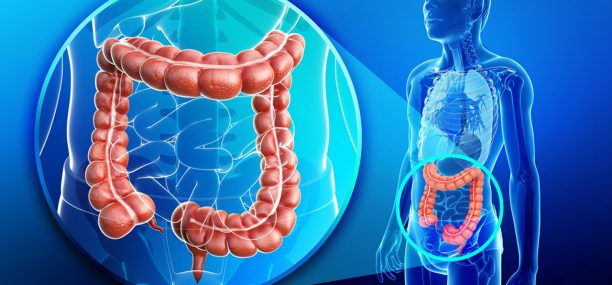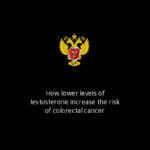Colorectal cancer Staging Symptoms Diagnosis and Treatment
What is colorectal cancer?
Colorectal cancer (colon cancer or rectal cancer) is medical term used to describe a cancerous tumor that starts in the colon or the rectum. more than 50,000 women are diagnosed every year in the united states alone.
What are the stages of colon cancer?
Stage 0 (cancer in situ): At this stage, the cancer cells are limited to the inner lining (mucosa) of the colon or rectum.
Stage I: At this stage, the cancerous cells has grown through the mucosa and has invaded the muscular layer of the colon or rectum, but these invasive cancerous cells have not spread into nearby tissue or lymph nodes (T1 or T2, N0, M0).
Stage IIA (T3, N0, M0): At this stage, the cancerous cells has grown into and has spread through the serosa (the outermost layer) of the colon or rectum, but these invasive cancerous cells have not spread into nearby organs or lymph nodes, and has not spread to distant organs.
Stage IIB (T4a, N0, M0): At this stage, the cancerous cells has spread through all of the layers of the colon or rectum, but the invasive cancerous cells has not spread into other organs or tissues.
What does stage 3 colon cancer mean?
Stage III rectal cancer is divided into three stages: stage IIIA, stage IIIB, and stage IIIC.
Stage IIIA: At this stage, the cancerous cells has grown into and has spread through the mucosa, submucosa and serosa of the rectum and may have spread to the muscle layer. Moreover, at this stage, the cancerous cells has spread to nearby lymph nodes (one to three) or to the tissue near the lymph nodes.
Stage IIIB: At this stage, the cancerous cells has grown into the serosa (the outermost layer) of the colon or rectum. Moreover, at this stage, the cancerous cells has spread through the wall of the colon or rectum into nearby organs or tissues, and yet these invasive cancerous cells has spread to regional lymph nodes (one to three) near the primary site, but has not spread to distant organs.
What is stage four colon cancer?
Stage IV: At this stage, the cancerous cells has spread through all of the layers of the colon or rectum and has metastasized to distant sites, such as the liver or lungs to form secondary cancers (metastases).
What is the survival rate for colon cancer?
- Patients with Stage I colon cancer have a survival rate of 80-95 percent.
- Patients with Stage II colon cancer have survival rates ranging from 55 to 80 percent.
- Patients with Stage III colon cancer have a survival rate of 40 percent.
- Patients with Stage IV colon cancer have a survival rate of 10 percent.
How long can a person live with Stage 4 colon cancer?
The outcome depends on the number of lymph nodes involved. Around 63% of men and women with Stage III colon cancer have a 5-year survival rate or more after they are diagnosed – Stage 4.
What are the symptoms of bowel cancer in a man?
Knowing early symptoms can improve your survival rate by receiving treatment from a specialist, taking part in clinical trials and living a healthy lifestyle to increase your chances of having a remission.
Early symptoms of bowel cancer in men include:
- Bowel changes
- Rectal bleeding
- Urinary changes
- Testicular lumps
- Blood in urine (hematuria)
- Excessive fatigue
- Persistent back pain
- Unusual coughing
- Unexplained weight loss
- Lumps in breast
Signs and symptoms of colon cancer include:
- Changes in bowel habits, including diarrhea or constipation or changes in consistency of stool that lasts longer than four weeks.
- Hematochezia or Rectal bleeding refers to passage of blood in your stool.
- Persistent abdominal discomfort (tummy ache), such as cramps, gas or pain.
- A feeling that your bowel doesn’t empty completely (tenesmus).
- Weakness or fatigue (apathy).
- Unexplained weight loss.
Many people with colon cancer experience no symptoms in the early stages of the disease. However, in most cases, symptoms vary, depending on the cancer’s size and location in your large intestine.
What are the main causes of colorectal cancer?
People with Hereditary nonpolyposis colorectal cancer (HNPCC) tend to develop colon cancer before age 50.
Familial adenomatous polyposis (FAP) is a rare disorder in which thousands of polyps develop on the inner lining (mucosa) of the large bowel (colon and rectum). People with untreated FAP have an increased risk of developing colorectal cancer before age 40.
How to diagnose colorectal cancer?
How do you detect bowel cancer?
There are many types of tests used to diagnose bowel cancer, but you will only have the tests you need.
A faecal occult blood test (FOBT) is a diagnostic procedure used to check stool samples for traces of blood.
A flexible sigmoidoscopy is a diagnostic procedure used to view the last 50 cm of the bowel (the rectum).
What is a CAT scan used to detect?
A computerized tomography (CT) scan provides more detailed information of the bones, blood vessels and soft tissues inside your body.
CT scan images provide more detailed information than plain X-rays do.
Can a CT scan of the abdomen detect colon cancer?
Abdominal CT scans can show a tumor in the colon, and can detect tumors spread to nearby tissues and lymph nodes involvement. This test is especially useful for finding hepatic metastases (liver metastasis).
How to treat colorectal cancer?
How treatable is colon cancer?
The prognosis of colon cancers is usually favorable, as they are treatable and even curable in early stages if the colon cancer hasn’t spread beyond the colon and has no, or minimal lymph node involvement.
After rectal removal surgery or resection of all or part of the colon, patients may require chemotherapy.
What kind of chemo is used for colon cancer?
The drugs most often used for colorectal cancer include:
5-Fluorouracil Injections (5-FU or Adrucil), which is a medication used to treat colorectal cancer. It is often given in a combination with Leucovorin (Folinic acid) or Levoleucovorin (Fusilev) to decrease the toxic effects of methotrexate and pyrimethamine.
Capecitabine Pills (Xeloda), which is a chemotherapy drug usually given to treat colorectal cancer.
What is in Folfiri?
FOLFIRI is the name of a chemotherapy combination that includes Folinic acid (FOL), Fluorouracil (F) and Irinotecan (IRI).
How do you treat bowel cancer?
There are three ways chemotherapy can be used to treat bowel cancer:
Before surgery chemotherapy is used in combination with radiotherapy to shrink the tumor.
After surgery chemotherapy is used to reduce the risk of cancer recurrence.
Palliative chemotherapy is used to slow the spread of advanced bowel cancer to help control symptoms.
Palliative chemotherapy provides no cure for patients, as it is designed for terminal cancer patients to ease symptoms and prolong survival rates.
Is Stage 2 colon cancer curable?
Stage II colorectal cancer is curable in 60-75% of cases without evidence of cancer recurrence following treatment with surgery alone. In Stage I – II colorectal cancer, treatment usually involves resection of all or part of the colon.
In Stage IIA, the tumor has spread through the serosa of the colon or rectum but is confined to the colon.
How to treat Stage III colorectal cancer?
In Stage III colorectal cancer treatment usually involves rectal removal surgery followed by adjuvant chemotherapy, along with radiation therapy. However, a clinical trial may also be an option.
Radiation therapy may also be used along with chemotherapy before surgery.
Can you be cured of Stage 4 cancer?
In stage IV colorectal cancer the tumors are less likely to be cured with surgery. However, surgical removal of the metastases in the liver or lungs along with the resection of all or part of the colon may help you live longer and may even cure you.
As a general rule metastases are difficult to detect or treat and are unlikely to go away completely after treatment, although treatment can help to shrink or control them.
How do you prevent bowel cancer?
8 ways to help prevent bowel cancer
- Get screened, regular screening for cancer can help doctors find and treat cancer early.
- Eat a healthy high fiber diet (Beans, Lentils, Wholegrain, Nuts, Dried fruit, Broccoli, Artichokes, Rice and other healthy cereal options, etc.)
- Engage in regular physical activity by doing at least 30 minutes a week of moderate-intensity aerobic activity.
- Reduce consumption of red and processed meat because high intakes of red and processed meats increase the risks of colon cancer.
- Don’t smoke.
- Maintain a healthy body weight (Eat 5 servings of food a day, Measure your portions, Reduce screen time, Regular physical activity, Count calories, Plan your meals in advance, etc.)
- Drink alcohol in moderation (up to two drinks a day for men ).
- Know your family history.
References
Verified by: Dr.Diab (November 1, 2017)
Citation: Dr.Diab. (November 1, 2017). Colorectal cancer Staging Symptoms Diagnosis and Treatment. Medcoi Journal of Medicine, 17(2). urn:medcoi:article17835.














There are no comments yet
Or use one of these social networks